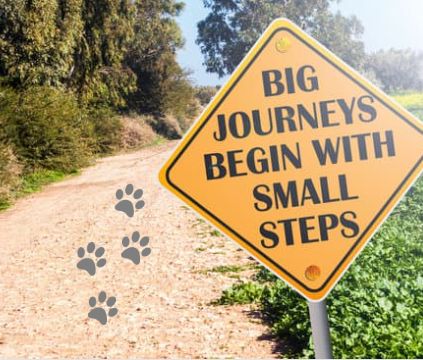To view the full series, check out our archive!
Today I am going to focus on forgiveness. The word forgive makes many people uneasy, uncomfortable. This is because forgiveness is a misunderstood topic.
Let’s say you find yourself stuck. You’re unable to move past the past, you’re anxious about the future and you can’t focus on the present.

But what does it mean to heal and how do you know when you are there? To heal is to make free from injury or disease. It does not mean you are perfect or that life will be perfect. It means you have relief from the anger and pain that you carry around. Your heart may feel less burdened, your shoulders lighter from the weight you have been carrying around. You may have times where the pain comes upon you but the difference is that it won't stay. You won't be carrying it around all the time. You can focus and enjoy other aspects of your life. Now, doesn't that sound wonderful, and doable?
 It should because it is. I have spoken to people who have endured some very traumatic hurts. And, if they are willing to work on themselves, this does happen. They start to enjoy life. It does not mean they do not have difficult moments. But they enjoy life again.
It should because it is. I have spoken to people who have endured some very traumatic hurts. And, if they are willing to work on themselves, this does happen. They start to enjoy life. It does not mean they do not have difficult moments. But they enjoy life again.1. Step One: Reframing your negative thoughts to positive ones.
2. Step Two: Read the positive thoughts out loud.
3. Step Three: Include an aroma that brings back positive memories or just one you like.
1. I don't have to go anywhere to do them. I can stay home in my pajamas!
2. They are easy to use. And without any side effects.
3. The process can be done relatively quickly.
4. They are available anytime of the day or night. No waking your therapist up at 3am.
But, that being said, there are other tools to help. One tool is forgiveness. Before you make up your mind about this topic, please read below:
One topic that comes up a lot when it comes to healing is forgiveness. I briefly mentioned it in another article. But I feel the need to discuss it further since it is so important.
Is dealing with the past the same as forgiving? No, but they are intertwined very closely. It can be used as a tool for healing. Forgiveness is often a misunderstood topic. I want to discuss some myths regarding forgiveness and what I personally believe it means.
What forgiveness ISForgiveness, per Merriam-Webster, is to cease to feel resentment. Resentment means bitter indignation at having been treated unfairly. Basically, you are bitter at not being treated fairly. If you notice, it does not say anything about the other person. It does not define forgiveness as accepting the behavior of the other. It does not say to wipe the slate clean or to go back to the way times were before the incident or hurt occurred. It only talks about not feeling bad or bitter anymore.
Doesn’t that sound like a wonderful feeling?
2. Forgiveness is not the same as forgetting. Pretending something did not happen won’t help. It is like sweeping a problem under the rug. You may not be able to see the problem, but it is still there. It only takes someone to move the rug for it to appear again. Forgetting means forgetting a part of your life and a part of yourself. There is a saying to forgive and forget. But, as I mentioned above, you can’t forgive and heal if you try to forget. I believe forgetting also means forgetting a part of your life, a part of you. The goal is to turn the pain into love. Meaning, use it to help others rather than destroy yourself.
3. Forgiveness does not mean you are friends with the person now. Things don’t go back to the way they were before the hurt. The problem with forgiveness is we think it means to wipe the slate clean. Everything is good. It brings images of sitting having a cup of tea with the other person or people involved and laughing at their jokes while making plans for a joint vacation. The offense is forgotten, and we just pretend like it never happened. But this is not the case.
4. Forgiveness is not for others. Many religions preach forgiveness, and some “require” it. God forgave you therefore you must forgive other people. If you don’t, you might go somewhere unpleasant when you die. Doing it for other people or because you have to defeats the whole purpose. Forgiveness is to give yourself a break. Forgiveness is for you. Being bitter and resentful wears you down. You need to forgive to remove the bitterness from your heart. Your heart needs the room for love and healing. It is like taking an aspirin if you have a headache. While other people may benefit because you may be more pleasant to be around when you feel better, the aspirin is for you not others.
I came across a couple more interesting myths about forgiveness in the article: Myths of Forgiveness | Psychology Today
5. If I forgive, it might happen to me again: for people that have experienced something traumatic, one of the adjustments afterward is often a vigilant stance of self-protection to avoid being a victim again. For some people with these experiences, the anger, pain, and anxiety related to the event, operate as fuel to help remain on guard. But through counseling, many people can develop new ways to protect themselves physically and emotionally, which allows for a forgiveness process to begin without the fear of being harmed again.6. After I forgive, I will never feel angry or hurt about it again: this final myth is one that can eventually be true after some time. But the pain doesn’t go away in just a few days. It takes some time.
There is no reason not to forgive. Do it for you!But what if the anger and bitterness is so great that you can’t get past it?
Baby steps. I briefly mention using baby steps to make progress in my article: Baby Steps: Thriving with Depression Part 3. Baby steps- taking one thing at a time is a very common idea. It takes time and practice to start a new habit and master a new skill.I mentioned the following in Haunted by the Past Part 4. But I believe the information is crucial; especially if you are at a place where you feel stuck. So, please forgive me for repeating myself.
What if you are not at the point where you can forgive (whether it be yourself or others) and use your experience to help others? If so, you may find it challenging to (1) reframe your situation from a negative to a positive and/or (2) learn from it. If you are stuck at this step, I recommend the following.
Start with the very basics. Be grateful that you are alive. If you don't yet feel that way, then be gratefulthat those who care about you don't have to grieve you because you are still alive. This may be family, friends, co-workers who depend on you and even a pet. Regarding the learning part, it may be just that you can encourage others by sharing your experience or learning how to become stronger by dealing with hurt.Sometimes you need to start with the very basics, especially as you initially heal, before you can see any further into the light. And that is absolutely ok!
Remember, baby steps! A journey of a thousand miles begins with a single step. -Chinese Proverb.












Comments
Post a Comment